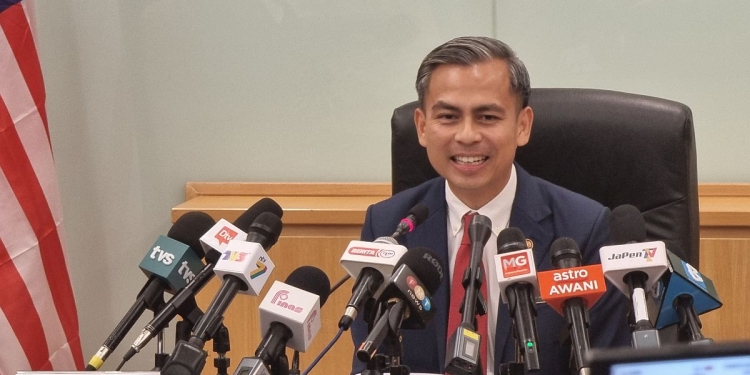During his first press conference as Malaysia’s new Communications and Digital Minister, Fahmi Fadzil said the government will assess the current state of 5G implementation through a single wholesale network. This comes after Prime Minister Anwar Ibrahim mentioned that the current deployment plans through state-owned Digital Nasional Berhad will be reviewed.
According to Fahmi, both his ministry and the Ministry of Finance will look into the technical assessment and review several aspects while ensuring that the current 5G rollout will not be interrupted, but accelerated. He said other countries have already deployed 5G extensively and some have even started discussions on 6G. He added that the government is aware of several issues and that’s why the Prime Minister has ordered for this matter to be looked into.
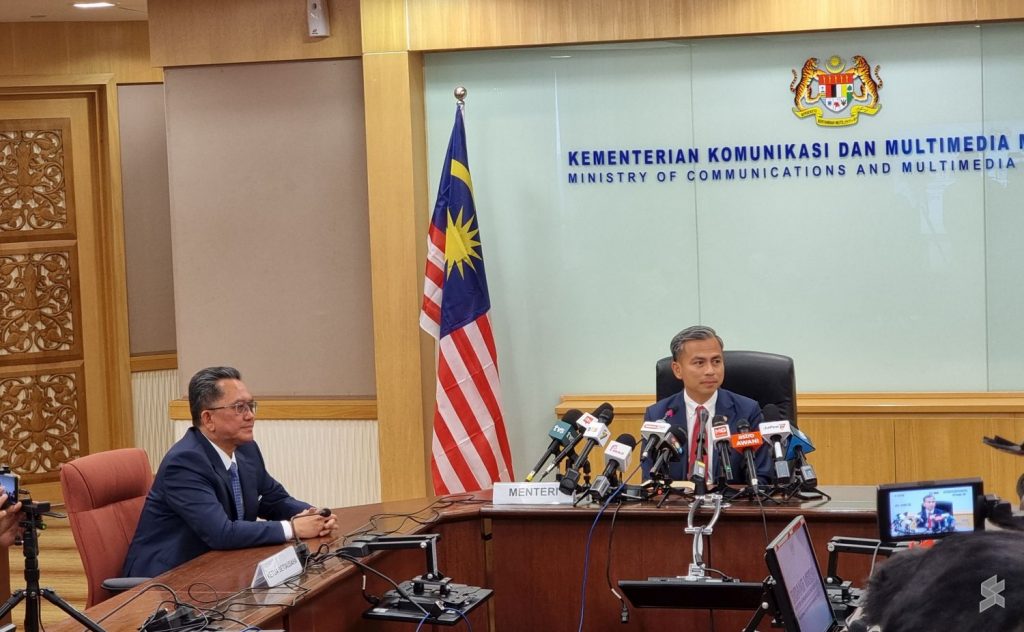
He shared that the first meeting on the 5G situation will be held soon followed by a briefing session with the Prime Minister. He hopes that Malaysia will be able to determine and decide on the direction in the coming weeks.
Fahmi added there are very few countries in the world that executed the rollout of 5G through a single wholesale network. The current 5G deployment via DNB was the decision of the previous Muhyiddin administration and the current government wants to assess its available options. So far they have received preliminary information, mostly on the current level of rollout. Fahmi hopes they will have more information and are better appraised of the situation by next week.
The Lembah Pantai MP said the government is very concerned about the lateness of the 5G rollout and at the same time, the government is also concerned about the cost as well as other matters related to it. At the moment, he said it is premature for him to say more on the matter but the process starts today and they will look into the 5G matter very quickly.
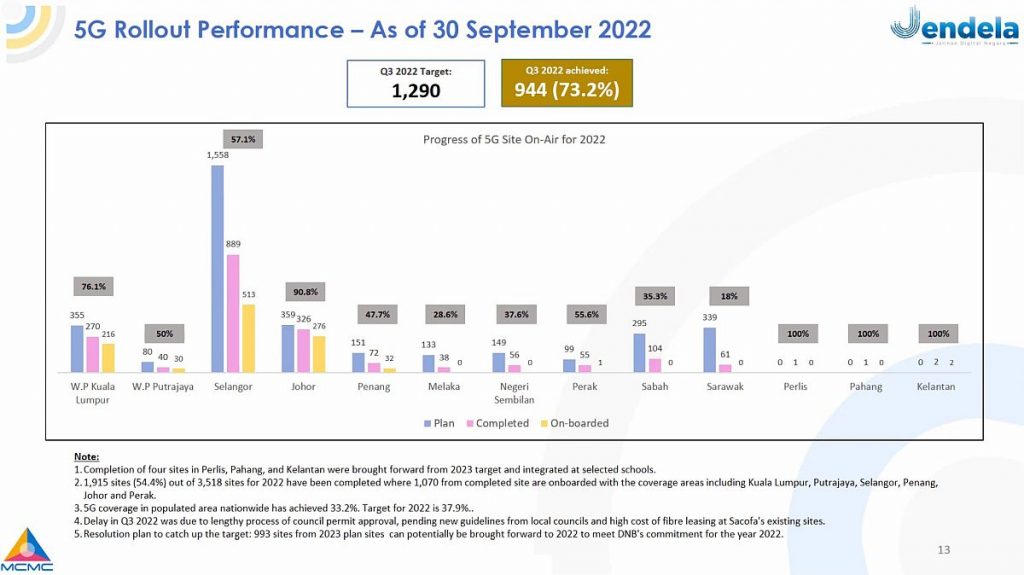
During the press event, Fahmi shared that DNB has deployed a total of 2,715 5G sites as of 31st October 2022 with 36% 5G population coverage. He also assured that the current 5G rollout by DNB will still continue and is not suspended. The government is only examining DNB, the company behind the rollout.
When asked about technology neutrality of existing spectrum, Fahmi said these are some of the things they will look into and it is part of the overall assessment of the situation. Other things including equity ownership of DNB will need to be better appraised.
With regards to whether DNB will be placed under Ministry of Communications and Digitial, he said that depends on the cabinet’s decision. For now, the cabinet has instructed for both ministries to assess the situation, look into contractual, technical and recent decisions, including Celcom-Digi mergers, spectrum allocation and equity for DNB itself. Fahmi said it is not an easy matter but he requests for a little bit of time. He hopes there will be greater clarity on the policy horizon when it comes to DNB and 5G next week.
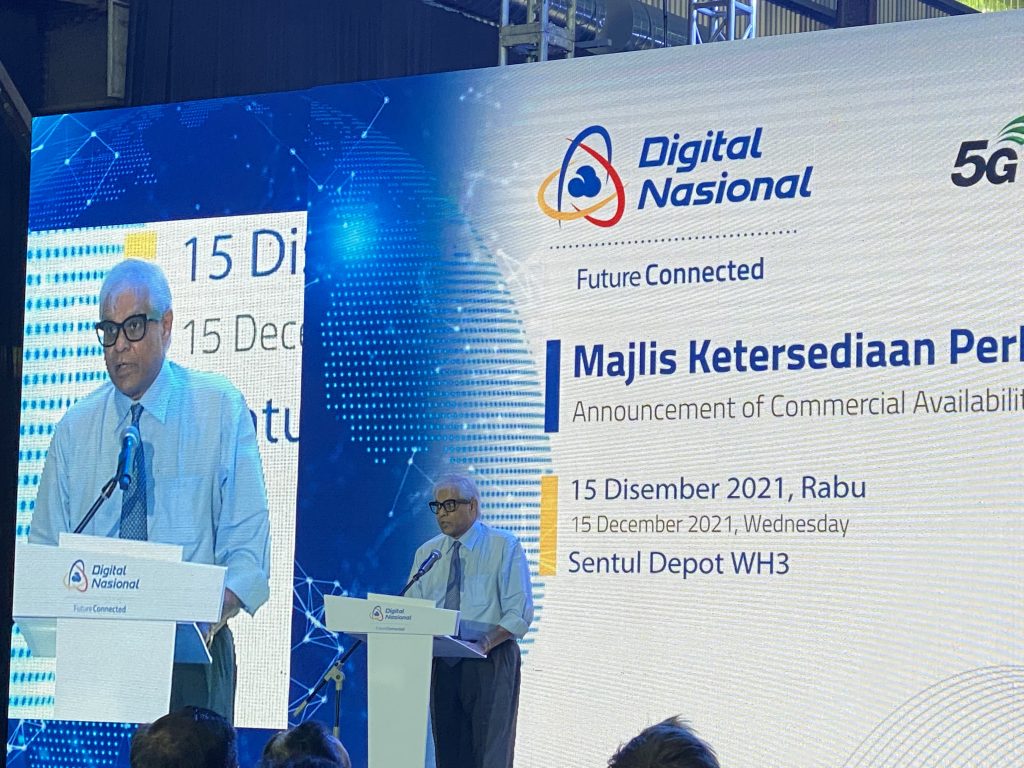
DNB has been mandated by the previous administration to build a national 5G network while existing telcos will have to seek wholesale access in order to provide 5G services to consumers. Currently, only five telcos have signed up for 5G access which include Celcom, Digi, U Mobile, Telekom Malaysia and YTL Communications. Maxis has deferred its decision to sign up for 5G access citing governance requirements to get approval from their shareholders. It aims to settle the 5G access agreements with DNB by January 2023.
Using a supply-driven and cost-recovery approach, DNB aims to roll out 5G with an aggressive timeline to achieve 40% 5G population coverage by the end of 2022 and 80% 5G population coverage by the end of 2024. According to its original timeline, it aims to have 4,018 5G sites by the end of this year. Today, DNB has revealed that it has finally enabled 5G in East Malaysia with coverage now available in Kuching and Kota Kinabalu.
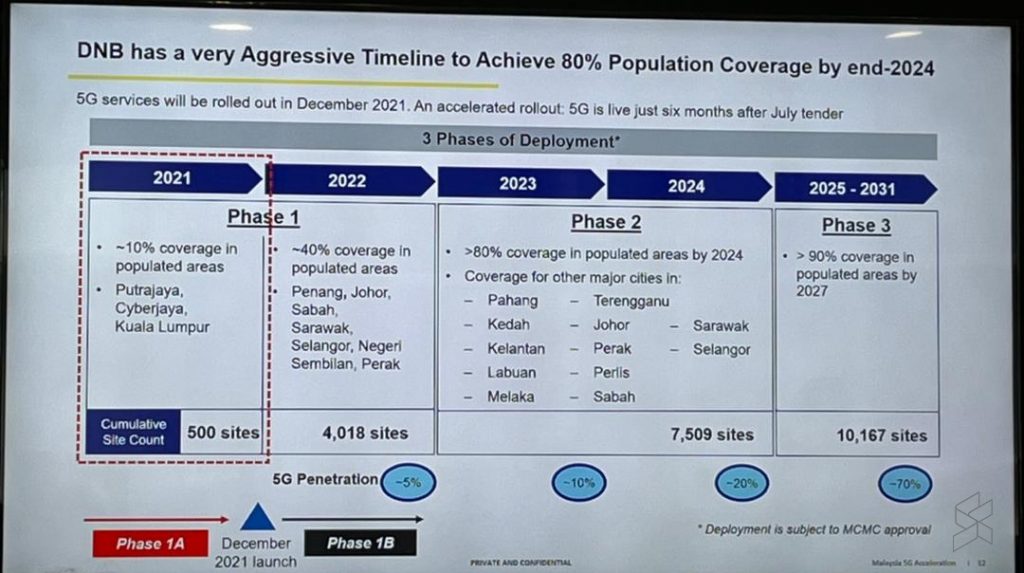
Under the previous Mahathir-led Pakatan Harapan administration, Malaysia was supposed to be one of the first in the region to roll out 5G by Q3 2020. Instead of allocating directly to telcos, the identified 700MHz, 3.5GHz and 26/28GHz spectrum for 5G was originally planned to be assigned to a private-led consortium.
According to the MCMC back in 2020, the consortium approach will help lower capital expenditure by minimising cost and prevent duplication of infrastructure. According to the 5G Task Force, the deployment of 5G would cost an estimated RM7-8 billion to cover 10,000 sites. Meanwhile, Digital Nasional Berhad’s 5G rollout is estimated to cost RM16.5 billion over 10 years and it could swell up to RM20 billion to anticipate an increase in capacity demand.
Early this year, the big four telcos such as Celcom, Digi, Maxis and U Mobile have proposed for a Dual Wholesale Network (DWN) model which will establish a second 5G network formed by a consortium of telcos alongside DNB. After some delays, the government eventually decided to continue the 5G rollout with DNB as the single wholesale network.

